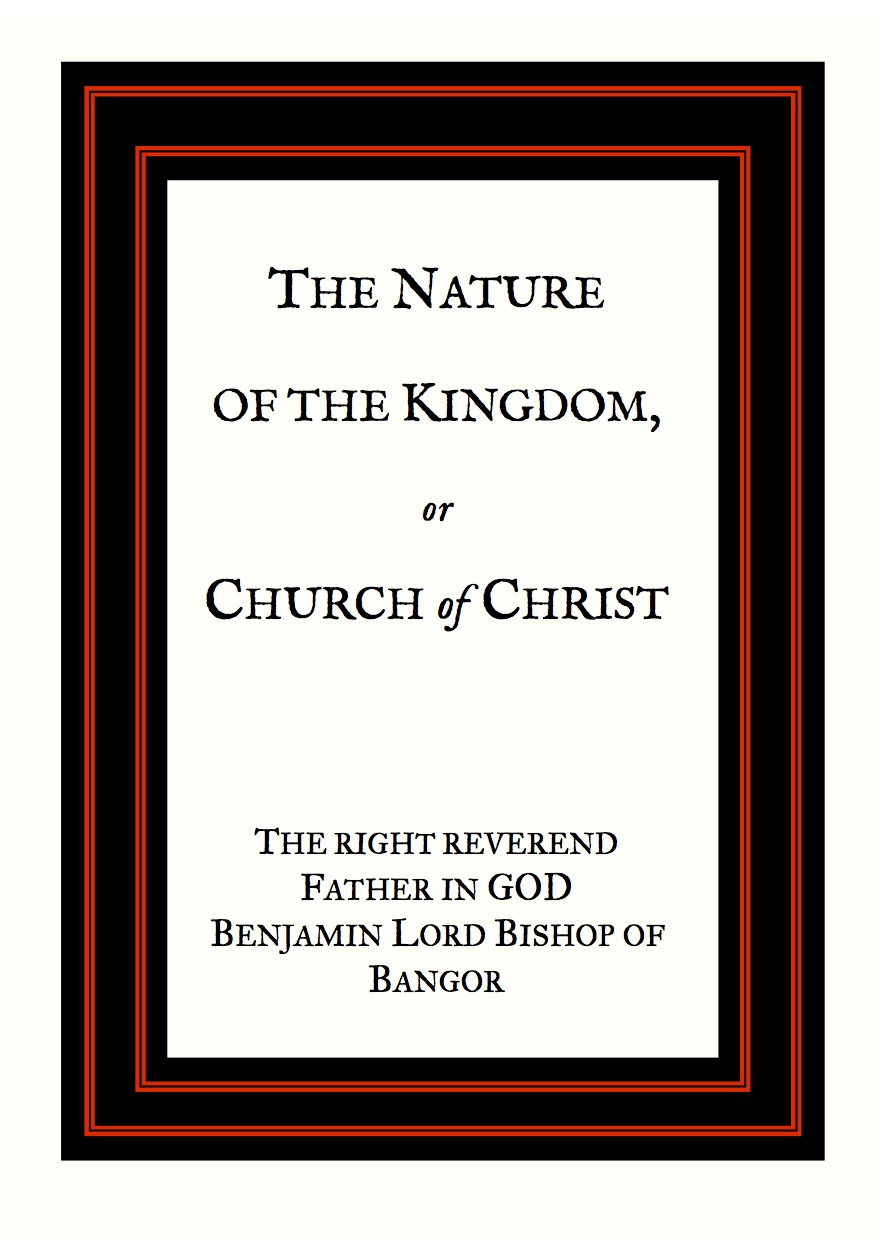Hoadly, The Nature of the KingdomThe Bangorian Controversy is probably not the most prominent topic on most readers’ minds — not even most Anglican readers’ — not even most Anglican controversialist readers’ — but in the seventeenth century, the question of the relation of church and state in post-Restoration England touched on practically everyone’s concerns. If I had more time, I might whip up editions of some of the pertinent documents from the Non-Jurors; but the Bishop of Bangor’s sermon attained wide circulation as a statement of Latitudinarian Erastianism (over against those Anglicans and Scottish Episcopalians who could not in conscience acknowledge William and Mary as legitimate monarchs while James II was alive). Non-Jurors might hew to a catholic, Jacobite line, or a principled Protestant primitivism, so the non-juring movement was constituted with internal conflict from the outset. On the other hand, the Latitudinarians who accepted William and Mary could argue (as Bishop Hoadly does herein) that the very idea of church government was non-biblical and that the state was the only proper seat of temporal authority.

Anyway, it’s not a long sermon, and you can read it here, in either single-page or two-up versions.